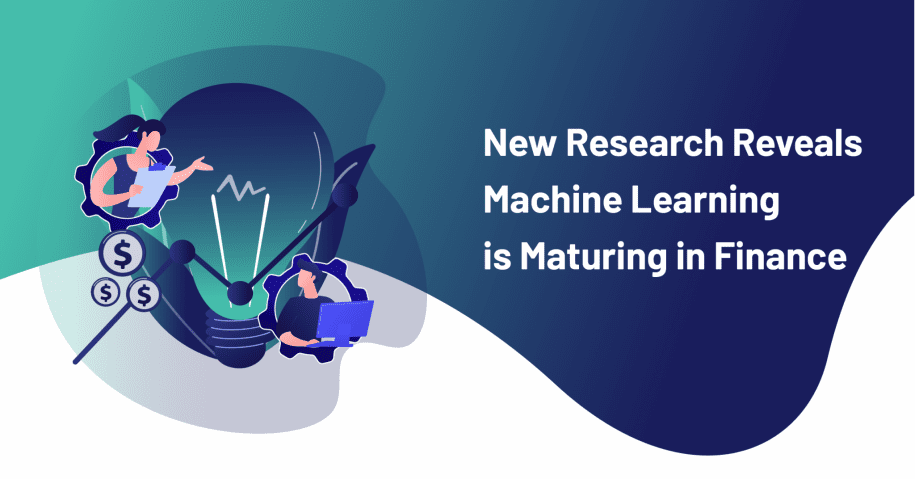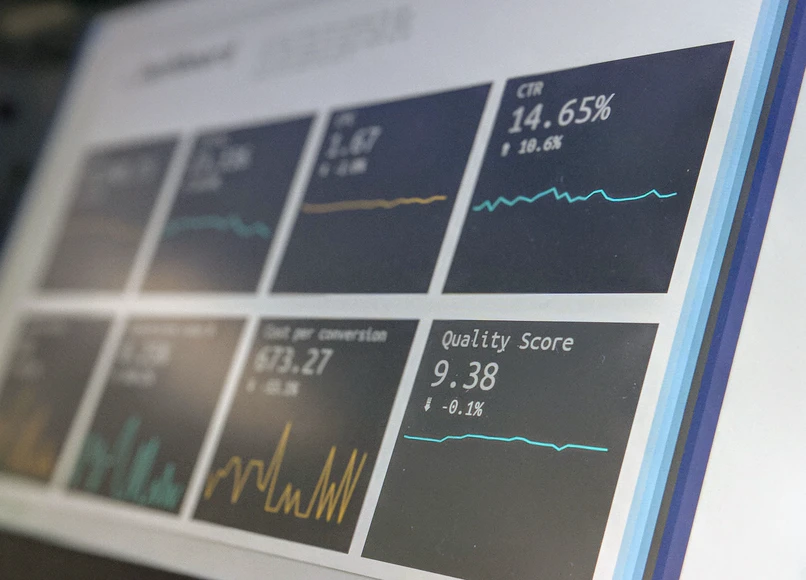You’ve probably heard the hype around machine learning in financial services written about in headlines. Machine Learning is nothing new, with it being one of many different types of Artificial Intelligence methods that are used to extract insights from data. However, AI has been steadily progressing over the past decade with the application of new technologies such as cloud computing and GPU’s which have exponentially increased its capabilities and impact on our everyday lives. Recently, machine learning has been touted as the next big thing in cutting-edge technology. Building on top of AI’s ability to extract data, it can create models that can then predict outcomes based on that data. From predictive maintenance to fraud detection, machine learning can assist us in identifying risks throughout our financial services.
Machine Learning in finance
Machine learning is the most widely-used form of AI in finance and many different types of models can be created with machine learning. For example, it can be used to predict the probability an account will be overdrawn, to determine the probability of fraud in your accounts, or to predict whether there is a pattern of overdrafts that could indicate an abusive customer. Machine Learning in financial services is known for creating models that are specifically tailored for specific situations. 54% of Financial Services organizations with 5,000+ employees have adopted AI, according to the latest Economist Intelligence Unit adoption study.
Financial Machine Learning is being used in every functional area in financial services. Analysts are using machine learning to assist them with providing better insights into their clients’ transactions – whether it is to identify fraud or help them understand the customer. Modeling events is used in finance to monitor the risk of fraud, monitor credit quality, and identify risks; which can then be compared against historical patterns of events to create predictive models that can then be used by bankers and traders to make predictions.
To have a firm understanding of what machine learning trends are being seen in the financial services industry, it is important to look at how different methods of machine learning are being utilized.
The modeling is viewed as a way for software businesses to automate their analyses and predictions for regulatory information by using data from human interactions with an external source such as a bank account. The modeling method makes use of the theory that there exists a general pattern in which rules can be applied without direct access to an individual’s situation or behavior.
Machine Learning Trends
Machine learning trends are constantly shifting as new technology becomes available, but these trends must be considered when designing data science strategies. Machine learning for financial services isn’t going anywhere, and it is only going to continue to be an invaluable tool for analysts and data scientists. Whether it is to predict the probability of certain events happening or detect fraud within a customer’s account, machine learning can assist us in making more informed decisions about our clients.
Currently, there is a lot of hype surrounding machine learning in finance and AI in general, with machine learning being used increasingly in many different parts of the financial services industry, from regulatory work to customer service. New developments in the machine learning industry will only make it more valuable to use for financial services firms.
Applications of Machine Learning in Finance
The application of machine learning has increased exponentially in the past decade with the introduction of new technologies such as cloud computing and GPUs that have empowered it and made its capabilities and impact more significant.
The application of machine learning in finance is not new. It has been used in many different aspects of finance for years, from analyzing past events to detecting potential risks to predicting future events that are likely to happen. Machine learning can be used in nearly every aspect of the financial services industry, ranging from customer relationship management to fraud detection, maintaining regulatory information, and much more.
The application of machine learning is primarily being seen in the financial services industry due to the number of banking transactions that take place daily. Using machine learning to analyze the behavior of customer accounts can provide financial services firms with new insights into how they can better serve their customers. Machine learning is accessible to anyone who has an understanding of statistics, and several machine learning platforms are easy to use for beginner data scientists. Data science enables financial services firms to collect large amounts of data and discover trends in this data that they never knew existed before, which can be used to create new ways of analyzing client information.
Deep Learning in Finance
Deep learning in finance is the application of Artificial Intelligence and Machine Learning for predicting and analyzing financial data. However, deep learning is a relatively new technology and there still needs to be more research done in the area of finance. Deep learning is already being used by some financial institutions such as the Royal Bank of Canada, Goldman Sachs, and Deutsche Bank.
New Opportunities
The recent advancements in AI and machine learning have opened up new opportunities for innovation and development within the financial services industry. As AI-driven financial-services products and services become more mainstream, financial institutions must adapt to these changes early. Financial firms that do not take advantage of AI may be at a competitive disadvantage as AI has been found to improve profitability, reduce costs, and provide better service to customers. Machine learning is also used immensely in the stock market and stock trading. Financial firms are using the power of machine learning to analyze different market data and develop smart applications that can detect patterns in the market that allow traders to make investment decisions with greater accuracy.
The widespread use of machine learning in the financial services industry has opened up new opportunities for growth for financial institutions. 70% of all financial services firms are using machine learning to predict cash flow events, fine-tune credit scores, and detect fraud, according to a recent survey by Deloitte Insights.
Conclusion
In conclusion, the use of machine learning in financial services has increased exponentially over the past decade with the introduction of new technologies that have empowered it and made its capabilities more significant. It is being used most in financial markets because this is where many deals are done. Machine learning can be used to detect when deals are rigged, by detecting abnormal behaviors in the market. Some recent work on machine learning for finance has been done on detecting pump-and-dump schemes, detecting rogue brokers who are cheating their customers, detecting when a broker engages in collusion with other brokers to manipulate prices, and predicting which stocks will do well.
Machine learning is already being used in many different areas within financial services, and it will continue to be an invaluable tool for analysts and data scientists who are looking for new ways to provide better insights into their clients’ needs.





Leave a Reply